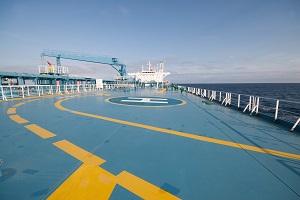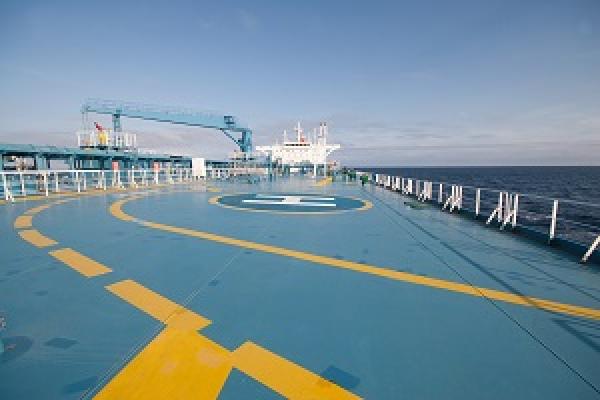
Jeff Cox
Published: January 22, 2019

A v B [2018] EWHC 2325 (Comm)
This Commercial Court decision concerns a challenge by Owners of a VLCC to an LMAA arbitration award, which had found them liable in damages for breach of an oil major eligibility clause. That appeal, under sections 68 and 69 of the Arbitration Act 1996, provides a helpful illustration in relation to the calculation of damages and in particular as to whether charterers are entitled to compensation for losses relating to a potentially profitable fixture against a background of an otherwise soft market and whether they are also entitled to claim for their wasted expenditure.
Facts
On 4 July 2011, Owners’ vessel was time-chartered to Charterers and then sub-chartered into a tanker pool, with the vessel being delivered into these charters on the same day. Both charters were on amended Shelltime 4 forms. There was also a third contract between Charterers and the Pool (the “Pool Agreement”).
Under the terms of the head charterparty, Charterers should provide and pay for all fuel and a minimum daily hire of US$15,000 per day. Owners were obliged to ensure that a valid report would be entered on the SIRE system (Ship Inspection Report Programme database) at all times, and that the vessel would be eligible as from delivery for the business of at least three named oil majors.
Under the sub-charterparty, and the Pool Agreement, Charterers were to ensure at all times the vessel has a SIRE report that was not more than six months old. The Pool Agreement also required the vessel to maintain eligibility with at least four oil majors.
In March 2012, the vessel was inspected by Statoil when discharging at Yingkou in China, and a critical SIRE report was produced. There was no other SIRE report available for the vessel before the Charterers placed the vessel off-hire on 26 October 2012.
In May 2012, the vessel was rejected as unacceptable to BP for discharge at one of its terminals, with the cargo having to be discharged offshore. On 12 September 2012 the SIRE report became six months old and the vessel was proposed and rejected by ExxonMobil. The vessel was further rejected by Total, and Petrobras. On 26 October 2012 the Charterers notified Owners that the vessel was off-hire by virtue of breach of clause 50 of the charterparty. Owners took over control of the vessel from that date and on 14 January 2013, the vessel was formally redelivered to Owners under the head charter.
Arbitration
The matter was referred to LMAA arbitration with Charterers claiming damages for loss due to the breach of the SIRE and oil majors eligibility clause. The damages claim was formed of:
- loss of profits, calculated by reference to two realistic but hypothetical voyages during the period from 26 September 2012 to 31 January 2013, for which it was argued that the vessel would have been employed but for the breach
- wasted expenditure for hire and bunkers incurred between 22 July and 26 October.
The total claim was approximately US$3.5 million.
The Tribunal found that Owners were in breach of the oil major eligibility clause as the vessel was not acceptable to at least four of the named oil majors, and also because the SIRE report became more than six months old. Charterers’ claim for damages succeeded in the sum of US$3.27million, which included lost profits, bunkers and pool losses.
Appeal
Owners applied to challenge the award on the grounds of serious irregularity and on points of law, but their arguments failed to persuade the Court to overturn the arbitration award.
The Court considered two key issues:
Compensatory Principle
The Court had to grapple with questions of law relating to the proper calculation of damages. The compensatory principle was considered, namely the basic rule that charterers must be placed in the same financial position they would have been had the charterparty been performed and by extension that charterers should not be placed in a better position than if there had been no breach. Owners argued that the Tribunal had over-compensated Charterers and provided them with a windfall.
A claimant cannot normally claim loss of profits and also seek expenses incurred under the contract being performed. Claimants therefore would be expected to claim for wasted expenditure or lost profits, but not for both. The case of The Mamola Challenger [2010] EWHC 2026 (Comm) ( Sea Venture issue 16 ) was considered, which related to expenses incurred by Owners in preparing their vessel for Time Charterers, who repudiated the charterparty at the outset of the five year period. In that case the owners sued the Charterers for the expenses, but it was held that the Owners had made a profit from alternative employment, and to have awarded them the wasted expenses as well would have placed them in a better position than if the contract had been performed. However, it was recognised there could be situations where wasted expenses leading up to a contract’s date of termination could be claimed, as well as loss of profit, where the latter is calculated net of the expenses incurred.
In the current case it was noted that the Tribunal’s calculations for lost profits had used time charter equivalent rates for the two voyages, which reflected the voyage revenues less bunker and other expenses, divided by the voyage duration in days. The Tribunal subtracted the bunker costs from 22 July 2012 to 26 September 2012, and the cost of hire from 22 July 2012 to 31 January 2013 from the total profit figure. Consequently, it was confirmed that the wasted expenditure for bunkers and hire from 22 July 2012 to 26 October 2012 did not overlap with the lost profits, both could be claimed without contravening the compensatory principle.
The Court also considered whether it was correct in law for the accounting position under the Pool Agreement to have been ignored by the Tribunal given the difficulties of separating the accounting and liabilities of any one vessel from the others in a pool. Since Charterers were not claiming for Pool distributions under the Pool Agreement but for what the vessel would have earned for the Pool, net of hire and bunkers, the issue did not fall to be determined.
Taking Account of the Market
The second issue was the relevance of an existence of an available market which is weak and loss making and whether damages should be assessed by reference to that available market, or by reference to lucrative fixtures which Charterers contend they would have entered into but for the breach and if a discount should apply by reference to loss of chance principles.
Against the background of an admittedly soft market where the Pool manager and Tribunal acknowledged that other Pool vessels were loss-making, the Tribunal’s finding of fact was it was “reasonable to calculate” and “reasonable to assume” that the lucrative fixtures would have gone ahead. They considered there was an available relevant market but that the vessel would probably have performed those fixtures but for the breach. Therefore it was not appropriate to reduce the recoverable damages below those profits or to discount the losses on the basis of loss of chance principles as analysed on The Vicky 1 [2008] EWCA Civ 101. ( Sea Venture issue 11 )
Comment
The case provides a helpful illustration of the application of an oil majors clause. This decision shows that it can be open to claimants to seek their loss of profits and also their expenses and liabilities incurred, provided that on the facts, there is no overlap or double compensation and the loss of profits is calculated as a net figure. In addition the Court was able to assess the probability of especially lucrative fixtures being available, even where the market was otherwise soft.


